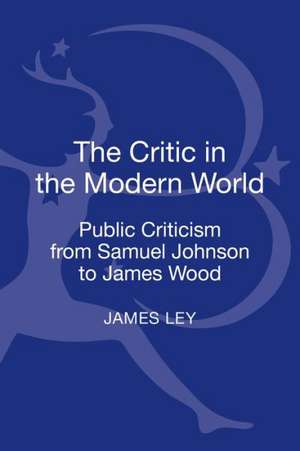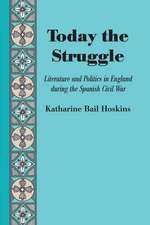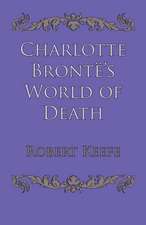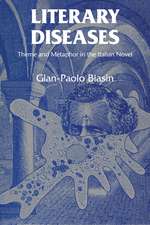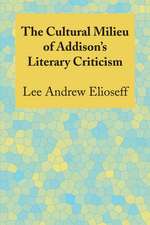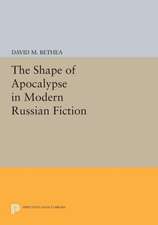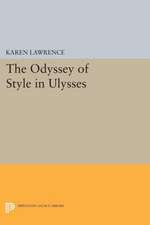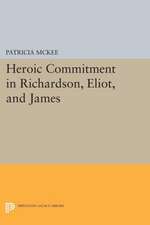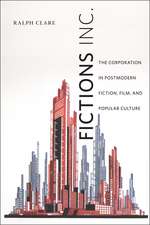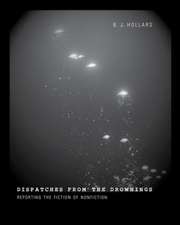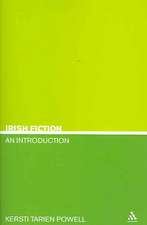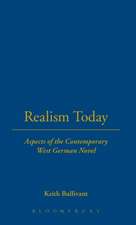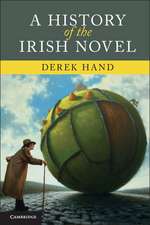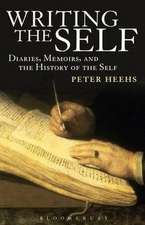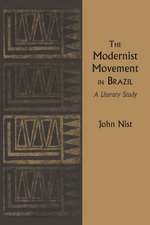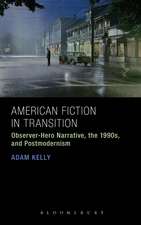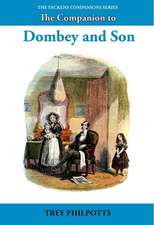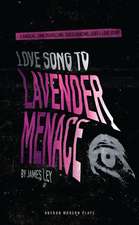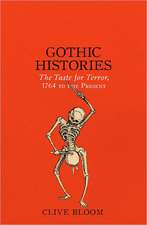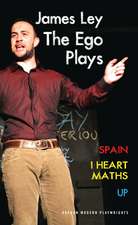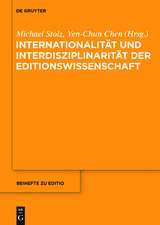The Critic in the Modern World: Public Criticism from Samuel Johnson to James Wood
Autor Dr. James Leyen Limba Engleză Hardback – 2 iul 2014
| Toate formatele și edițiile | Preț | Express |
|---|---|---|
| Paperback (1) | 190.96 lei 6-8 săpt. | |
| Bloomsbury Publishing – 2 iul 2014 | 190.96 lei 6-8 săpt. | |
| Hardback (1) | 830.62 lei 6-8 săpt. | |
| Bloomsbury Publishing – 2 iul 2014 | 830.62 lei 6-8 săpt. |
Preț: 830.62 lei
Preț vechi: 965.84 lei
-14% Nou
Puncte Express: 1246
Preț estimativ în valută:
158.94€ • 169.96$ • 132.52£
158.94€ • 169.96$ • 132.52£
Carte tipărită la comandă
Livrare economică 17 aprilie-01 mai
Preluare comenzi: 021 569.72.76
Specificații
ISBN-13: 9781623563738
ISBN-10: 1623563739
Pagini: 248
Ilustrații: black & white illustrations
Dimensiuni: 140 x 216 x 23 mm
Greutate: 0.43 kg
Ediția:New.
Editura: Bloomsbury Publishing
Colecția Bloomsbury Academic
Locul publicării:New York, United States
ISBN-10: 1623563739
Pagini: 248
Ilustrații: black & white illustrations
Dimensiuni: 140 x 216 x 23 mm
Greutate: 0.43 kg
Ediția:New.
Editura: Bloomsbury Publishing
Colecția Bloomsbury Academic
Locul publicării:New York, United States
Caracteristici
A
lucid
analysis
of
the
individual
critical
philosophies
of
six
influential
English-language
literary
critics.
Notă biografică
James
Leyis
the
Editor
of
theSydney
Review
of
Books.
His
work
as
a
literary
critic
has
appeared
in
numerous
publications,
includingThe
Age,
Australian
Book
Review,
The
Sydney
Morning
Herald,
The
Australianand
theTimes
Literary
Supplement.
Cuprins
AcknowledgementsIntroduction1.
A
Degree
of
Insanity:
Samuel
Johnson
(1709-1784)2.
Fire
from
the
Flint:
William
Hazlitt
(1778-1830)3.
A
Thyesteän
Banquet
of
Clap-Trap:
Matthew
Arnold
(1822-1888)4.
The
Principles
of
Modern
Heresy:
T.S.
Eliot
(1888-1965)5.
'I
do
like
the
West
and
wish
it
would
stop
declining':
Lionel
Trilling
(1905-1975)6.
The
Secular
Wood:
James
Wood
(1965-
)PostscriptBibliographyIndex
Recenzii
The
Critic
in
the
Modern
Worldis
an
exceptionally
intelligent
and
well-written
study,
showing
how
some
of
the
greatest
English-language
critics
have
engaged
with
literature
and
the
world.
Like
the
critics
he
writes
about,
Ley
is
addressing
not
the
specialist
but
the
generally
educated
reader,
and
anyone
who
cares
about
the
tradition
of
criticism
will
find
him
a
rewarding
and
enlightening
guide.
Ley (Univ. of Western Sydney; editor, Sydney Review of Books) sets out to trace the history of the public literary critic by examining the work of six influential and representative men: Samuel Johnson, William Hazlitt, Matthew Arnold, T.S. Eliot, Lionel Trilling, and James Wood. Combining analysis of the critics' ideas with relevant pieces of their biographies and cultural and historical context, these essays explore the practice and influence of the public judge (as opposed to the academic one). Each piece can stand alone, but the work reads best chronologically as Ley compares and contrasts the ideas of each critic to his predecessors..Thoughtful and well written, Ley's study covers nearly 300 years of literary history. He deftly moves the reader from Johnson's neoclassical stance through romanticism, modernism, and the present-day secular position of Wood.
Just when you think critics must be among the most tedious people on the planet, along comes a book such as James Ley'sThe Critic in the Modern Worldto gently remind you this is not the case. [...] Ley has done something remarkable with this little book. Without over-relying on the biographical, he shows how much is at stake in the posture of critic. He has taken six well-known figures and revealed how, in their own way, patrician, slovenly, reserved or pugnacious, they created the platform that is so broad and free now, we can almost take it for granted.
"The Critic in the Modern Worldis a lucid, exciting, finely tuned, and elegant work of literary criticism that you won't want to put down. At some points you want to argue with the author, at others you are quietly trying to keep up, at others again simply admiring. To paraphrase Ley's salute to James Wood, this is a fine achievement and one that is a product of this twenty-first-century literary moment.
An entertaining study . Mr. Ley's mission, it turns out, is to systematize the spontaneous opinion-brokering of which most criticism consists... his attempt to authenticate the position played by the critic in modern life consists in subjugating six of the past quarter-millennium's best-known literary critics to a series of interrogations as to what they stand for, what view they take of books and, if only by implication, what view they take of life itself.
Ley (Univ. of Western Sydney; editor, Sydney Review of Books) sets out to trace the history of the public literary critic by examining the work of six influential and representative men: Samuel Johnson, William Hazlitt, Matthew Arnold, T.S. Eliot, Lionel Trilling, and James Wood. Combining analysis of the critics' ideas with relevant pieces of their biographies and cultural and historical context, these essays explore the practice and influence of the public judge (as opposed to the academic one). Each piece can stand alone, but the work reads best chronologically as Ley compares and contrasts the ideas of each critic to his predecessors..Thoughtful and well written, Ley's study covers nearly 300 years of literary history. He deftly moves the reader from Johnson's neoclassical stance through romanticism, modernism, and the present-day secular position of Wood.
Just when you think critics must be among the most tedious people on the planet, along comes a book such as James Ley'sThe Critic in the Modern Worldto gently remind you this is not the case. [...] Ley has done something remarkable with this little book. Without over-relying on the biographical, he shows how much is at stake in the posture of critic. He has taken six well-known figures and revealed how, in their own way, patrician, slovenly, reserved or pugnacious, they created the platform that is so broad and free now, we can almost take it for granted.
"The Critic in the Modern Worldis a lucid, exciting, finely tuned, and elegant work of literary criticism that you won't want to put down. At some points you want to argue with the author, at others you are quietly trying to keep up, at others again simply admiring. To paraphrase Ley's salute to James Wood, this is a fine achievement and one that is a product of this twenty-first-century literary moment.
An entertaining study . Mr. Ley's mission, it turns out, is to systematize the spontaneous opinion-brokering of which most criticism consists... his attempt to authenticate the position played by the critic in modern life consists in subjugating six of the past quarter-millennium's best-known literary critics to a series of interrogations as to what they stand for, what view they take of books and, if only by implication, what view they take of life itself.
